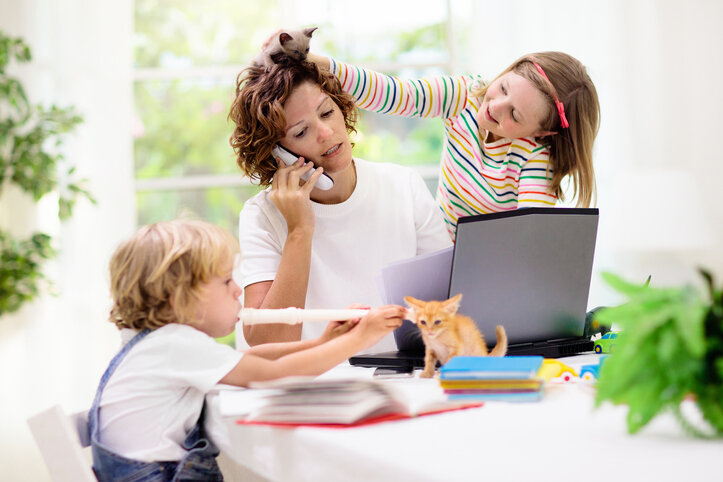The criteria for the emotional and mental health of children must be met first to ensure that they learn effectively.
The current health crisis has forced the educational system to rely mainly on technology for emergency remote education. Educational technology (EdTech) resources have experienced enormous growth in recent months due to the need for quick solutions to ensure the continuity of learning during these times of contingency.
This strategic use of technological resources has led to the establishment of online education platforms at all levels. Schools and universities around the world offer online classes in Spanish, mathematics, history, chemistry, philosophy, arts, and physical education, among others.
Even with the areas of opportunity that online education presents, the collaborative efforts to keep schools open in virtual mode have permitted millions of students around the world to continue their learning. Nevertheless, a significant number of parents are withdrawing their children from online school as the quarantine lengthens. Why is this happening?
Children’s emotional health in quarantine
The psychological weight of living a strict schedule of isolation long term not only affects adults but also the children are especially vulnerable in quarantine like the one we are experiencing now. At home, parents with the option to work remotely must balance their work obligations with the tasks that need to be done at home plus help their children with school assignments. This has proven to be a weighty burden for parents with children in primary schools.
We just wrote a hard email. I told our son’s (lovely, kind, caring) teacher that, no, we will not be participating in her “virtual classroom”, and that he was done with the 1st grade. We cannot cope with this insanity. Survival and protecting his well being come first.
— Sarah Parcak (@indyfromspace) April 8, 2020
Sarah Parcak, the mother of a 7-year-old boy, went viral upon publishing on Twitter the reason why she was going to retire her child from an online school.
Parcak, an archaeologist, added that the family continues to do activities that cultivate her child’s academic, emotional, and motor intelligence, but at a rate that can be sustained without overloading a child already overwhelmed by the extraordinary situation of mandatory isolation.
The brief but blunt message that received more than 36 thousand likes and three thousand five hundred retweets, most of the parents who identified with Parcak’s experience, has undoubtedly been cathartic for many. However, it raises crucial questions about the academic future of children whose parents remove them from an online school.
What happens with children’s academic advancement?
For parents who decide to remove their children from school because of the quarantine, the biggest concern is that the children may be delayed educationally compared to others. Jon E. Pedersen, Dean of the School of Education at the University of South Carolina, explained that the falling-behind would not be much comparatively, given that many children are in the same situation, whether their parents have removed them from an online school or they have had trouble adjusting to it. “[ … ] they’re not going to be alone. Most schools next year will have to deal with what was lost during the crisis. The academic setbacks can be recovered. We can get through this,” commented the dean.
Similarly, teachers, educational staff, and education experts are preparing for an educational contingency when the health crisis is over, and it is time to refill the classrooms. They are already discussing options and strategies so that students can make up the lost time without having to repeat a year. For now, the priority should be to ensure the emotional well-being of the children and their parents. This is how a safe space for learning becomes established at all levels.
This article from Observatory of the Institute for the Future of Education may be shared under the terms of the license CC BY-NC-SA 4.0 
)
)


)